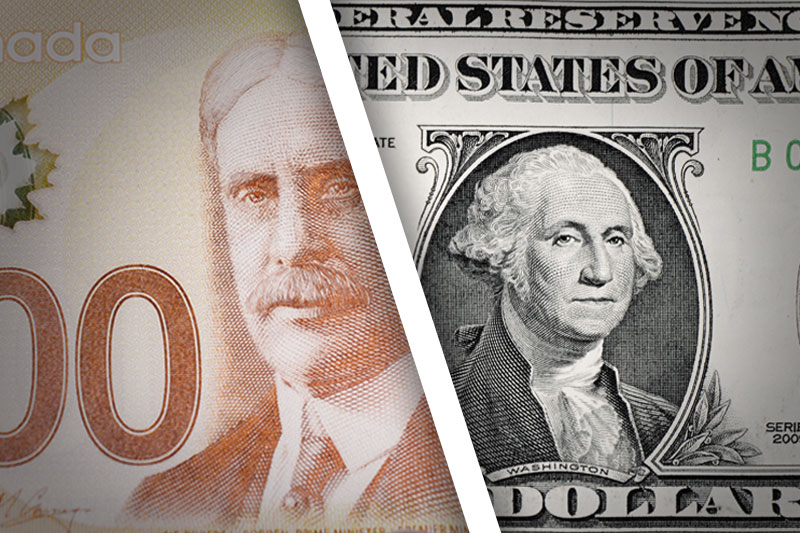Investing.com - The U.S. dollar dropped against its Canadian counterpart on Monday, as the release of strong Canadian economic growth data lent support to the loonie, although trading volumes remained limited ahead of the Christmas holiday.
USD/CAD hit 1.0590 during European afternoon trade, the pair's lowest since December 17; the pair subsequently consolidated at 1.0599, shedding 0.35%.
The pair was likely to find support at 1.0561, the low of December 12 and resistance at 1.0654, the session high.
The loonie strengthened after a report showed that the gross domestic product expanded by a seasonally adjusted 0.3% in October, above expectations for growth of 0.1%. Canada’s economy grew by 0.3% in September.
Canada’s GDP expanded at an annualized rate of 2.7% in October, beating forecasts for an increase of 2.3%, following growth of 2.4% in the preceding month.
In the U.S., the Bureau of Economic Analysis said that personal spending rose 0.5% last month, matching expectations. Personal spending for October was revised up to a 0.4% gain from a previously reported increase of 0.3%.
The report also showed personal income rose 0.2% in November, missing expectations for a 0.5% increase, after falling by 0.1% in October.
The data came after a report on Friday showed that U.S. gross domestic product expanded by 4.1% in the third quarter, above initial estimates for 3.6% growth.
The loonie was higher against the euro, with EUR/CAD falling 0.18% to 1.4517.
Later in the day, the U.S. was to release a report by the University of Michigan on consumer sentiment.
USD/CAD hit 1.0590 during European afternoon trade, the pair's lowest since December 17; the pair subsequently consolidated at 1.0599, shedding 0.35%.
The pair was likely to find support at 1.0561, the low of December 12 and resistance at 1.0654, the session high.
The loonie strengthened after a report showed that the gross domestic product expanded by a seasonally adjusted 0.3% in October, above expectations for growth of 0.1%. Canada’s economy grew by 0.3% in September.
Canada’s GDP expanded at an annualized rate of 2.7% in October, beating forecasts for an increase of 2.3%, following growth of 2.4% in the preceding month.
In the U.S., the Bureau of Economic Analysis said that personal spending rose 0.5% last month, matching expectations. Personal spending for October was revised up to a 0.4% gain from a previously reported increase of 0.3%.
The report also showed personal income rose 0.2% in November, missing expectations for a 0.5% increase, after falling by 0.1% in October.
The data came after a report on Friday showed that U.S. gross domestic product expanded by 4.1% in the third quarter, above initial estimates for 3.6% growth.
The loonie was higher against the euro, with EUR/CAD falling 0.18% to 1.4517.
Later in the day, the U.S. was to release a report by the University of Michigan on consumer sentiment.
